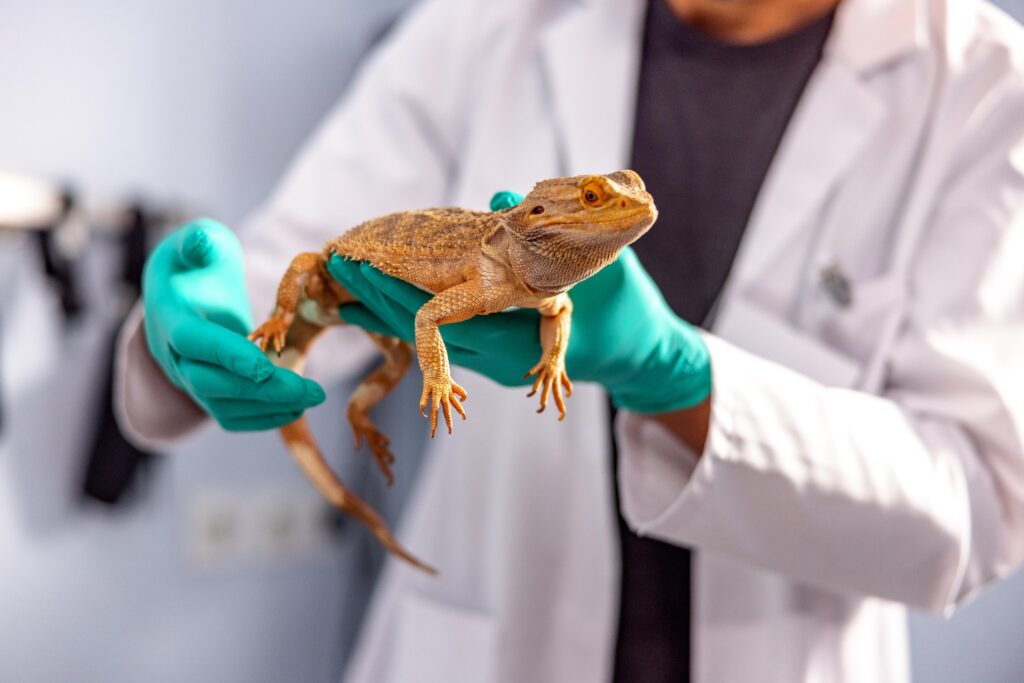Husbandry Care for Small Pet Reptiles

Regardless of species, the basic needs of survival are pretty universal. Humans really aren’t so different from, say, reptiles. After all, we all need adequate nutrition and safe housing to live. Reptile husbandry refers to the specialized care of snakes, turtles, and lizards. To help them thrive in captivity, owners of these unique pets must create conditions that support healthy growth and comfort.
A Set-Up For Success
A whopping 90% of medical reptile cases involve a lack of balanced, complete nutrition, inappropriate hygienic housing, or a combination of both. Spontaneous adoption or insufficient research can lead to trouble rather quickly for pet reptiles. Husbandry care for small pet reptiles is an important endeavor, and requires careful consideration before adoption, and throughout a pet’s life.
More Than Just Location
Safe, size-appropriate, and hygienic housing is vital to reptile health and happiness. The following may help pet owners prepare:
- A reptile’s enclosure or habitat can become too small over time. Please keep in mind the potential adult size of your pet reptile and plan accordingly. If you adopt a juvenile reptile, gain an understanding of their rate of growth and how large they might grow as an adult.
- An appropriate substrate is critical. Numerous health problems can result from inadequate or inappropriate substrate.
- Pet reptiles should be able to behave normally without any hindrance. Normal reptile behaviors can include basking, hunting, climbing, and hiding out. An interesting habitat adds to their overall enrichment. Take advantage of vertical space.
- Without proper heating and UV lighting, reptiles can become very ill. That said, however, each individual type or reptile has their own specific needs for light and heat. Extensive research will help avoid terrible outcomes like bone deformities, fractures, and more.
- Humidity and water features are essential to pet reptiles, and must be tended to every day. Exact needs vary. Prevent dehydration, skin shedding problems, and behavioral concerns by adding just the right amount of water to their enclosure.
A Highly Specialized Diet
Husbandry care for small pet reptiles hinges on following nutritional instructions closely. Captive reptiles depend on a careful supply of vitamins and minerals.
- Herbivore diets feature mixed vegetables along with species-specific pellets.
- Carnivorous diets are characterized by proteins found in rodents and fish, and can include various insects like mealworms, crickets, and earthworms.
- Omnivorous diets include all the foods listed above in a healthy, balanced way.
Reptiles need the same foods in species-specific intervals, but they also enjoy a variety of offerings. Some reptiles need live prey daily, others can wait up to 2 weeks between meals. Some pets, like turtles, will only eat in exact places in their tank or enclosure. It’s highly subjective, and may take time to fully realize a reptile’s preferences.
Successful Pet Reptile Care
When you have your reptile’s housing, temperature, humidity, lighting, and water needs dialed in, chances are their nutritional needs are equally fulfilled. If you have questions about helping your reptile thrive please call us at (512) 263-9292. Our veterinarians and staff members are always happy to assist you at BEEVET Animal Hospital.
